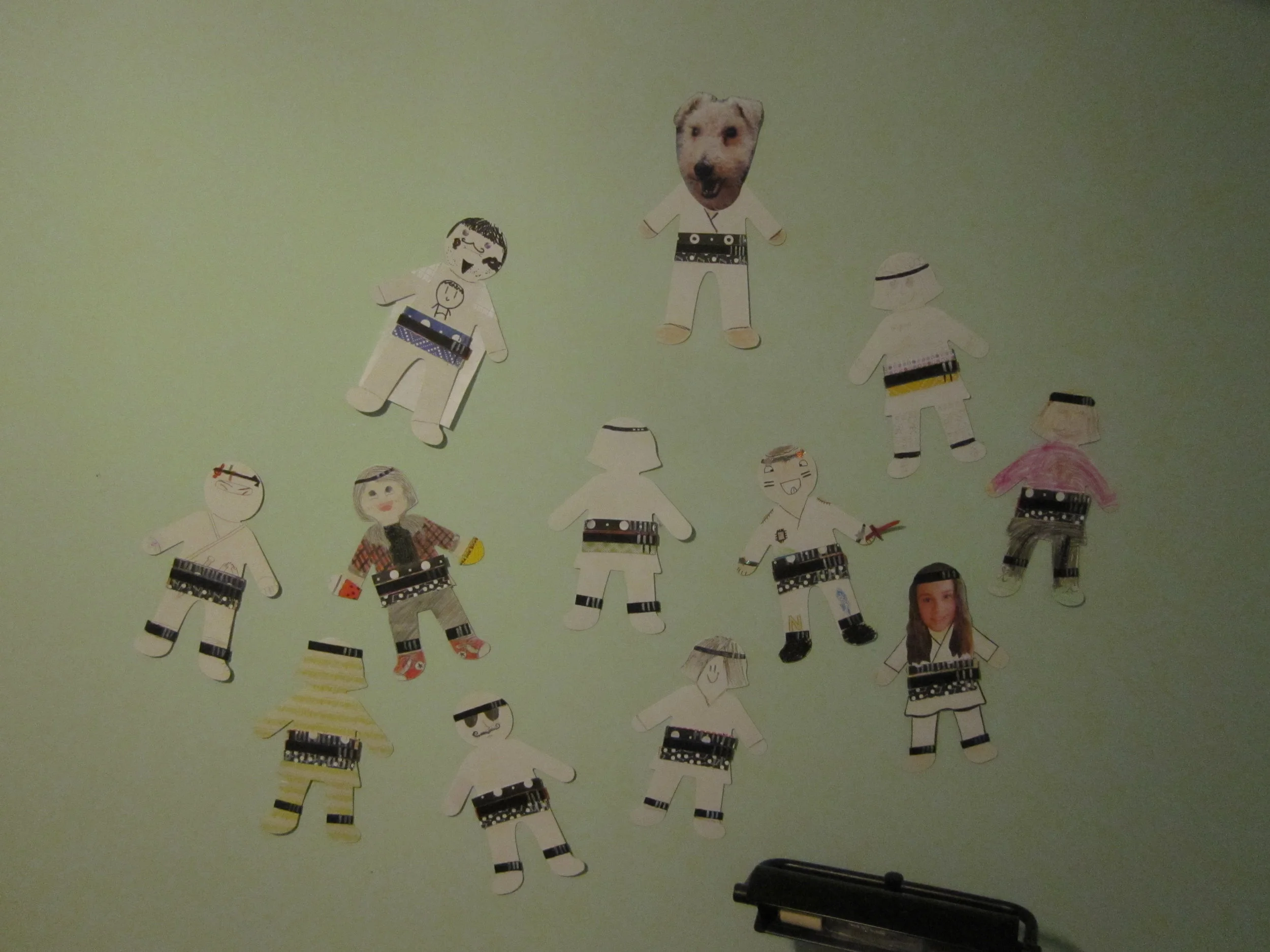When Maestro crossed Rainbow Bridge, my students and I agreed that at least one challenge will forever be Maestro's, regardless of who the current Studio Assistant is (right now, it's R2-D2). Until a new canine studio assistant is brought in, all the challenges will remain in Maestro's name.
This year, I made two big changes to Maestro's Student Challenges. The first is that I separated the Musician Survival Skills Challenges and the Music Moxie Challenges. The biggest change, however, is how my students and I are approaching piano technique. It's been a bit of a gamble, especially with the ones preparing for an exam, but it's paying off.
2016/17 Challenge Theme: Focus
Last year, Maestro and I ran his Karate Belt Challenges to measure students' progress in piano technique, musician survival skills (e.g., ear training, sight-reading, rhythm work), and music moxie (performing, composing, etc.). My students had a fun time designing their avatars. Two had a little game of Hide & Seek going on where they'd hide each other's avatars.
Some of the avatars that my students created last year for Maestro's Karate Belt Challenges. Photo: R-M Arca.
Looking back, there were a few drawbacks to this set-up. First, it was impossible to get through all of the weekly challenges, plus repertoire, and theory in a single lesson. Secondly, it took some students a really long time to get through their technique challenges.
This year, the students are only working on one or two challenges at any given time, most of the time. In September, is the Back Basics Challenge and the Technique Challenge.
The Back to Basics Challenge was pretty simple. The students had approximately five challenges a week, in which they demonstrated what they remembered about posture, articulation, tempo, and dynamics.
Piano Technique Challenge
One thing I wanted to do this year is make a clearer connection between those dreaded scales, chords, and arpeggios with keyboard theory (and then later, written theory). That way, could work on chording and faking with much earlier in the year.
For the first two months, we focussed on arpeggios and just arpeggios. We started with C Major and minor and travelled around the Circle of Fifths, playing the tonic major and minor arpeggios. We also worked on rhythm, sub-division, shaping, accents, and weight transfer ad nauseum.
My students began to string together several arpeggios. Most probably didn't realize that I was getting them to string the tonic, sub-dominant, and dominant chords together, but they did discover that if you pick keys close to each other on the Circle of Fifths, they string together rather nicely. Many powered through this fairly quickly.
Next came tonic major and minor triads. This is where most of my students are currently. Good enough for them to fake their way through Christmas songs if they are put on the spot this past Christmas Break.
Once they complete their trip around the Circle of Fifths, we'll go back to the top and work through the I-IV-V-I chord progression in earnest. That will be the first order of business after Christmas Break, followed by scales and modes. By that time, I hope that my students have started to make stronger connections between the technical elements in their music and between their technique and theory.
So far, one of my Grade 8 piano students has progressed to the scales portion of Maestro's Technique Challenge. She's enjoying it much more than in years past because she's also working on modes, the Hindu scale, blues, major pentatonic, and the Spanish/Jewish scale. That's standard fare for my Conservatory Canada Contemporary Idioms students, but she's in the Royal Conservatory. It's a whole new world of harmonies for her.
By the time all of my students complete the challenges for their level, they will know much more technique than what is listed in the conservatory syllabus for their playing level. That's fine. They will have enough tools in their "musician's toolbox" to be a versatile valued member in any ensemble.
For those who are interested in how I broke down the challenges, you may download the file here.
My students and I recently completed Maestro's Ear Training Challenge and are currently working through his Rhythm Challenge. More on those next time. Stay tuned!


